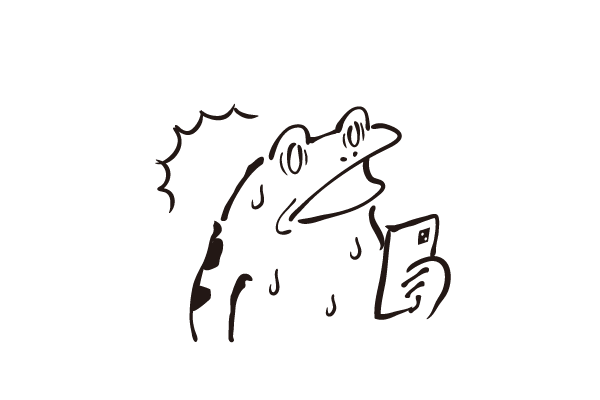今日のボヤキ 5/24

今日のボヤキは「少年院上がりの事実」についてです。
「怖い。危ない。」というイメージを持っている人が多いと思いますが、表面だけを見ていないでしょうか?
そこに潜む問題とは何なのでしょうか?
https://toyokeizai.net/articles/-/580360
「東大に入るよりも難しい関門」
非行少年と言えば、かつては、眉毛を剃り落とし、斜に構えて暗がりの中でこちらをにらみながら人を寄せつけない風貌を持つ、得体の知れない「モンスター」として描かれてきたのではないでしょうか。実際、家庭裁判所に事件が送られた者のうち、少年院の門をくぐるのは約3.6%(2019年)という狭き門です。入院して間もない少年たちにオリエンテーションをする際、「君たちは東大に入るよりも難しい関門をくぐってきたのだよ」と切り出すと、引きつった笑みを浮かべるのが常でした。
2018年9月に政府広報室が実施した「再犯防止対策に関する世論調査」によると、非行や犯罪をした人の立ち直りに対して、協力したいと「思う」が54%、「思わない」が41%と、あまり差はありません。
「思わない」の主な理由はつぎの通りです。「どのように接すればよいかわからない」(45%)、「自分や家族の身に何か起きないか不安」(43%)、「かかわりを持ちたくない」(36%)、「具体的なイメージがわかない」(25%)などです。少年院という壁によって、非行少年の素顔が見えにくいのはしごく当たり前かもしれません。
背景のひとつには、SNSの普及によるコミュニケーションの形の変化がありました。やり場のないエネルギーが充満し、爆音とともに発散を繰り返す暴走族に代表される厳しい上下関係やカンパのようなしきたりを敬遠する若者が増えてきたのです。また、危険を冒してまで集団に同調し、警察などに抵抗することも避けるようになりました。
むしろ、現場にわざわざ出向かなくとも、SNS上で労力をかけずに即反応ができたり、あるいは無視を決め込んだりと、SNSを使って簡単に目立つことができるお手軽な時代となりました。とりわけ、最近の特殊詐欺に加担した少年たちは、主犯格である成人の加害者の顔を知らないまま携帯で指示され、縁もゆかりもない老人を被害者にし、逮捕されると「運が悪かっただけ」と述べるなど、罪の意識の低さに驚かされます。
まさに、非行少年同士が面と向かってしのぎを削った時代は去り、非接触型の顔の見えにくい現代型非行の到来です。
一度「犯罪者」というレッテルが張られると、それを取ることが出来ず、一生その負い目を感じて生きなければならない制度はどうなのでしょうか?
確かに「怖い。得体が知れない。」という声ももちろんわかりますが、その内容次第では社会復帰する機会を与えても良いのではないでしょうか?
成人年齢引き下げもあり、比較的若い世代が自由と引き換えに責任を背負うようになりました。その若者を社会に出して野放しにするのではなく、多少なりとも社会で見守るくらいのことは出来るのではないでしょうか?
ただ、SNSの普及による「罪の意識の低下」についてはもっと問題視する声は必要であり、そこを学校での学びや施設での復帰に向けた取り組みとして注力してもらいたいですね。
English edition
Today's blurbs 5/27
Today's blurbs are about "The Fact of Coming Out of Juvenile Hall.
Scary. Dangerous. But, are you sure you are not just looking at the surface of the situation?
What are the problems that lie beneath the surface?
https://toyokeizai.net/articles/-/580360
A more difficult barrier than getting into the University of Tokyo."
Juvenile delinquents used to be portrayed as mysterious "monsters" with shaved eyebrows, slanted posture, and an unapproachable appearance as they glared at us in the dark.
In fact, only about 3.6% (in 2019) of those whose cases are sent to family court pass through the gates of a juvenile reformatory, a narrow gate. When orienting juveniles who have just been admitted to the hospital, I would usually get a drawn-out smile when I would start out by saying, "You have passed through a more difficult barrier than getting into the University of Tokyo."
According to the "Public Opinion Poll on Measures to Prevent Recidivism," conducted by the Government Information Office in September 2018, there is not much difference between 54% of respondents "agree" that they want to help delinquent or criminal offenders get back on their feet and 41% "disagree."
The main reasons for "don't think so" are as follows. The main reasons for the "no opinion" responses were: "I don't know how to deal with them" (45%), "I am afraid something will happen to me or my family" (43%), "I don't want to get involved" (36%), and "I don't have a concrete image of what it would be like" (25%). It is perhaps not surprising that the walls of juvenile reformatories make it difficult to see the true faces of juvenile delinquents.
One of the reasons for this is the change in the form of communication due to the spread of social networking services. The number of young people who have no place to express their energy has been increasing, and they have come to shun the strict hierarchical relationships and camp-like traditions represented by biker gangs, which repeatedly vent their energy with the sound of explosions. They have also come to avoid risking their lives to sympathize with the group and resist the police and other authorities.
Rather, it has become easy to stand out using social networking sites, where one can respond immediately and without effort without going to the trouble of going to the scene of the crime, or simply ignore the situation. In particular, recent cases of juveniles involved in special fraud have been directed by cell phones without knowing the faces of their adult perpetrators, who are the main perpetrators, to victimize elderly people with whom they have no connection, and when arrested, they state that they were just unlucky.
Gone are the days when juvenile delinquents competed with each other face to face, and in its place is the modern, non-contact, faceless delinquent.
What about a system in which, once a juvenile is labeled a "criminal," he or she is unable to remove the label and must live with the guilt for the rest of his or her life?
Certainly, "It's scary. I don't know what I'm getting." But, depending on the nature of the crime, shouldn't the offender be given the opportunity to rejoin society?
With the lowering of the age of adulthood, the relatively young generation is now taking on more responsibility in exchange for their freedom. Rather than letting these young people out into the world and letting them run wild, can't we do more or less to watch over them in society?
However, there needs to be more of a call to address the issue of "diminished guilt" due to the widespread use of social networking services, and I would like to see that focus as an initiative for learning in schools and returning to work in institutions.